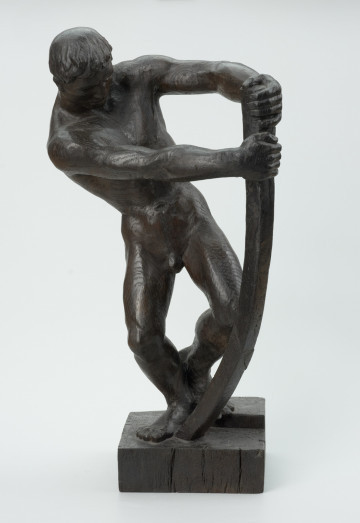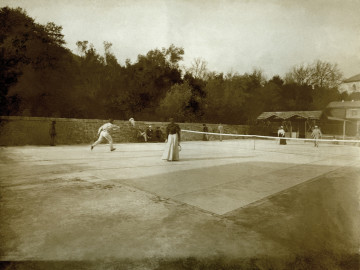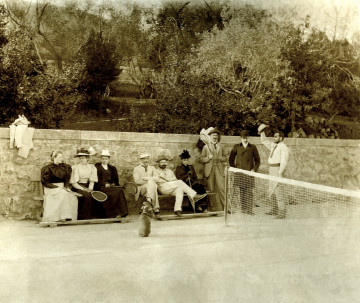
Work; Work created human
około 1950
National Museum in Szczecin
Part of the collection: European classics of modernity
Georg Kolbe was the son of the master painter Theodor Emil Kolbe. Between 1893 and 1894, he studied at the School of Arts and Crafts in Dresden, but already in 1895, he decided to move to Munich. There he initially enrolled in the private courses of Simon Hollosy, but due to financial difficulties he transferred to the Academy of Fine Arts there, first to the class of Gabriel von Hackl and then to Otto Seitz. In 1897, he went to Paris for a few months, where he studied at the Académie Julian. Between 1898 and 1901 he stayed in Rome, coming into contact with August Gaul and August Kraus, and especially Louis Tuaillon, who convinced Kolbe to take up sculpture. In 1909, the artist took part in the Paris Autumn Salon and visited the atelier of Auguste Rodin there. A decade later Kolbe was admitted to the Prussian Academy of Art, appointed the president of the Free Secession, and honoured with the title of professor. His sculptures of the time, with rough surfaces refracting light in the manner of Rodin's works, evoked associations with the art of the friendly Expressionists. A trip to Greece intensified his interest in classical statuary sculpture. Despite the increasing number of Kolbe's heroic statues, the new Nazi government's attitude to the style represented by the artist was ambivalent. Some of his works were removed from public space after 1933, but new commissions appeared. These included the statue of a resting athlete adorning the courtyard of the central sports complex in Berlin-Charlottenburg, where the 11th Summer Olympics were held in 1936. The Szczecin statue is a reduced version of this composition.
Szymon Piotr Kubiak
Author / creator
Dimensions
cały obiekt: height: 27,5 cm, width: 48 cm
Object type
sculpture
Creation time / dating
Creation / finding place
Identification number
Location / status

około 1950
National Museum in Szczecin

Castle Museum in Łańcut

Castle Museum in Łańcut
DISCOVER this TOPIC
Castle Museum in Łańcut
DISCOVER this PATH
Educational path